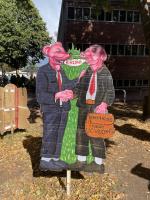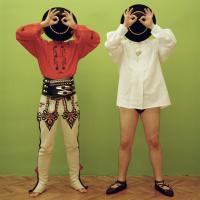germany
Articles tagged with germany
Tag Archive
- (For)getting
- (Re)Imagining African Independence
- Acarte
- activism
- África
- african
- african hair
- african studies
- Afro-Port
- afropolitismo
- agriculture
- Alqueva
- angolan literature
- Argélia
- art as activism
- atafona
- atlântico sul
- Bienal de S.Paulo
- Carnival
- ccd
- chilhood memories
- Chomsky
- Chris Marker
- colonial legacies
- communality
- contemporary dance
- Content Production
- COVID-19
- cuban communist party
- Cuca
- cultura visual
- David Goldblatt
- ddd
- decolonial
- discoveries
- drawings
- Ephemeral Landscapes
- fotography
- France
- Fuck'ing Globo
- General D
- gente de cor
- Geo-archaeological research
- Globalization
- havana
- História dos Descobrimentos e da Expansão
- history of Africa
- holocaust
- imperialism
- Ingrid Mwangi
- iran
- iwalewahaus
- Johanesburg
- journey
- journeys
- Kurt Kohlstedt
- language policies
- lendas
- Lilia Schwarcz
- literatura angolana
- literatura cubana
- Lula
- marxism
- memória
- Memorial to Homage Enslaved People
- memory politics
- migrações
- morocco
- mpla
- My Kaaba is HUMAN Stories.
- national liberation
- nepal
- nominals
- Olavo Amado
- paisagem
- palestina
- patrimony
- Paulo Kapela
- Pedro Neves Marques
- poem
- poesia caboverdiana
- police brutality
- Política Cultural
- Práticas artísticas
- progressive academia
- radio
- Remittances
- representações de áfrica
- rock art
- romance
- Ryszard Kapuscinski
- schools
- short filme
- Slavery
- Stone
- sun
- surrealism
- Tribuna Negra
- yanomami
- Yvone Kane
 After departing from Germany, they settled in Australia and began archiving their visual memories, which were eventually sent to Iwalewahaus. Their professional legacy has since been digitized and shared with the Centre of Black Culture and International Understanding (CBCIU) in Osogbo, Nigeria. Their collection has been researched in the frame of collaborative research projects and individual PhD topics, questioning Ulli and Georgina Beiers legacy and its inherent dominant narratives as well as contributing to a broader understanding of Modernisms. Currently, Iwalewahaus as an institution still feeds from its initial strategies, trying to navigate between different stakeholders and ethical commitment.
After departing from Germany, they settled in Australia and began archiving their visual memories, which were eventually sent to Iwalewahaus. Their professional legacy has since been digitized and shared with the Centre of Black Culture and International Understanding (CBCIU) in Osogbo, Nigeria. Their collection has been researched in the frame of collaborative research projects and individual PhD topics, questioning Ulli and Georgina Beiers legacy and its inherent dominant narratives as well as contributing to a broader understanding of Modernisms. Currently, Iwalewahaus as an institution still feeds from its initial strategies, trying to navigate between different stakeholders and ethical commitment.  Always identified with audacity, - or, as seen in the international press, marked with “controversies” and even “scandals” - the event is among the largest and most important in the art world. The fifteenth edition that was recently carried out was not exempt from a “scandal”: the unanimity of the German press in its judgment of anti-Semitism.
Always identified with audacity, - or, as seen in the international press, marked with “controversies” and even “scandals” - the event is among the largest and most important in the art world. The fifteenth edition that was recently carried out was not exempt from a “scandal”: the unanimity of the German press in its judgment of anti-Semitism.  The exhibition, which aims to give voice to a young generation of photographers in Poland, also includes the work of Irena Kalicka, a young artist who is critical of her country’s tendency to turn to the extreme right. I had the opportunity to present a photograph of her in the magazine “Fantasia Macau” last year.
The exhibition, which aims to give voice to a young generation of photographers in Poland, also includes the work of Irena Kalicka, a young artist who is critical of her country’s tendency to turn to the extreme right. I had the opportunity to present a photograph of her in the magazine “Fantasia Macau” last year.  I think we always have the responsibility of looking into the ghosts of these colonial dreams and taking the ideas further. For example, we must rethink what are artwork features and what exactly defines them? Institutions change, in a slow and tedious way, but it happens. If we also think about the thesis and how it is configurated, how free can we be about the aesthetic part of it? Now we can offer “decolonize art studies” as a course. All the reconfigurations are a very long process to be achieved. A very important thing I would like to highlight is that where you are you must do your work and contribution. We should try to influence others with our work, inspiring them and trying to change what we know is wrong.
I think we always have the responsibility of looking into the ghosts of these colonial dreams and taking the ideas further. For example, we must rethink what are artwork features and what exactly defines them? Institutions change, in a slow and tedious way, but it happens. If we also think about the thesis and how it is configurated, how free can we be about the aesthetic part of it? Now we can offer “decolonize art studies” as a course. All the reconfigurations are a very long process to be achieved. A very important thing I would like to highlight is that where you are you must do your work and contribution. We should try to influence others with our work, inspiring them and trying to change what we know is wrong. 
